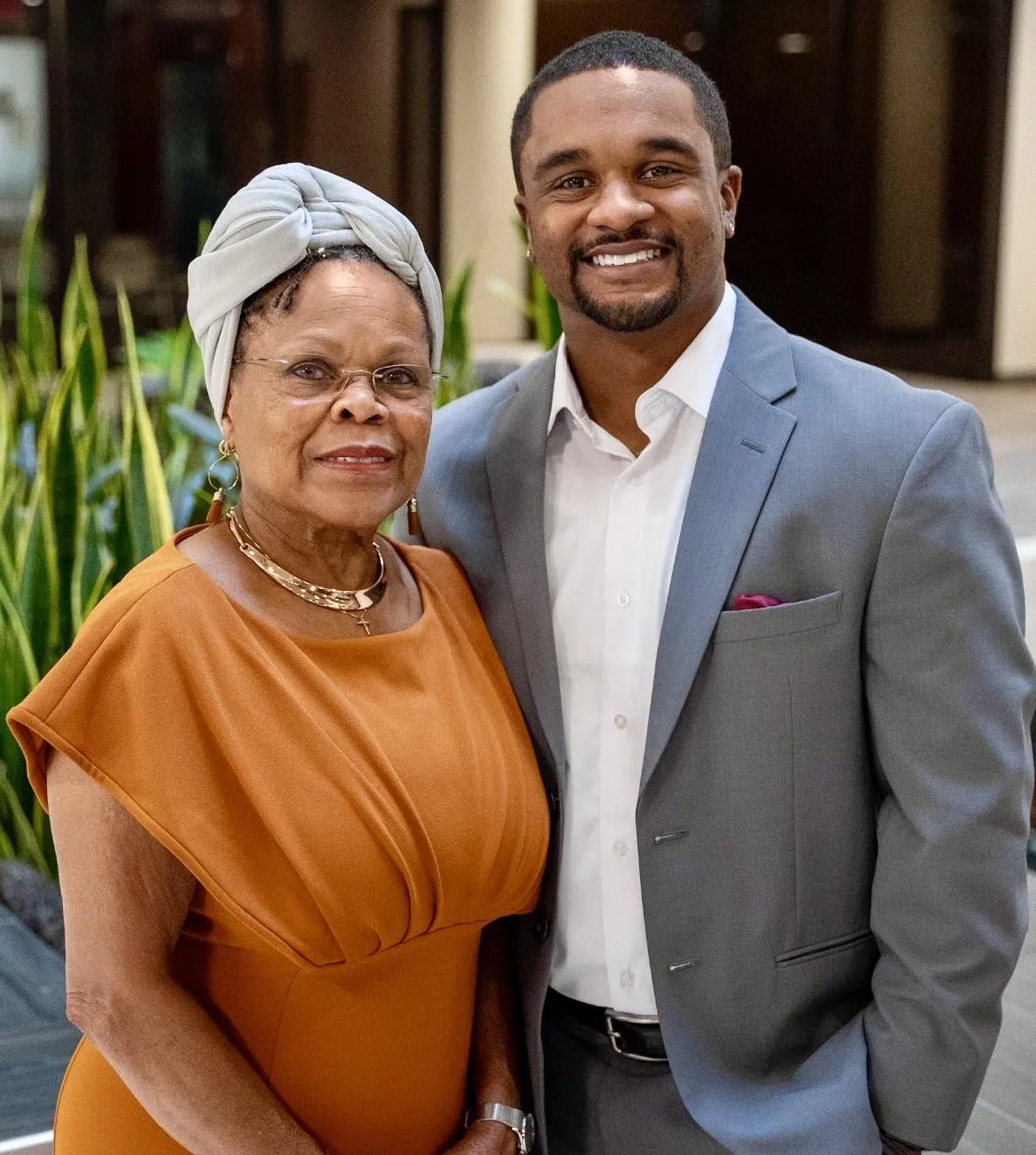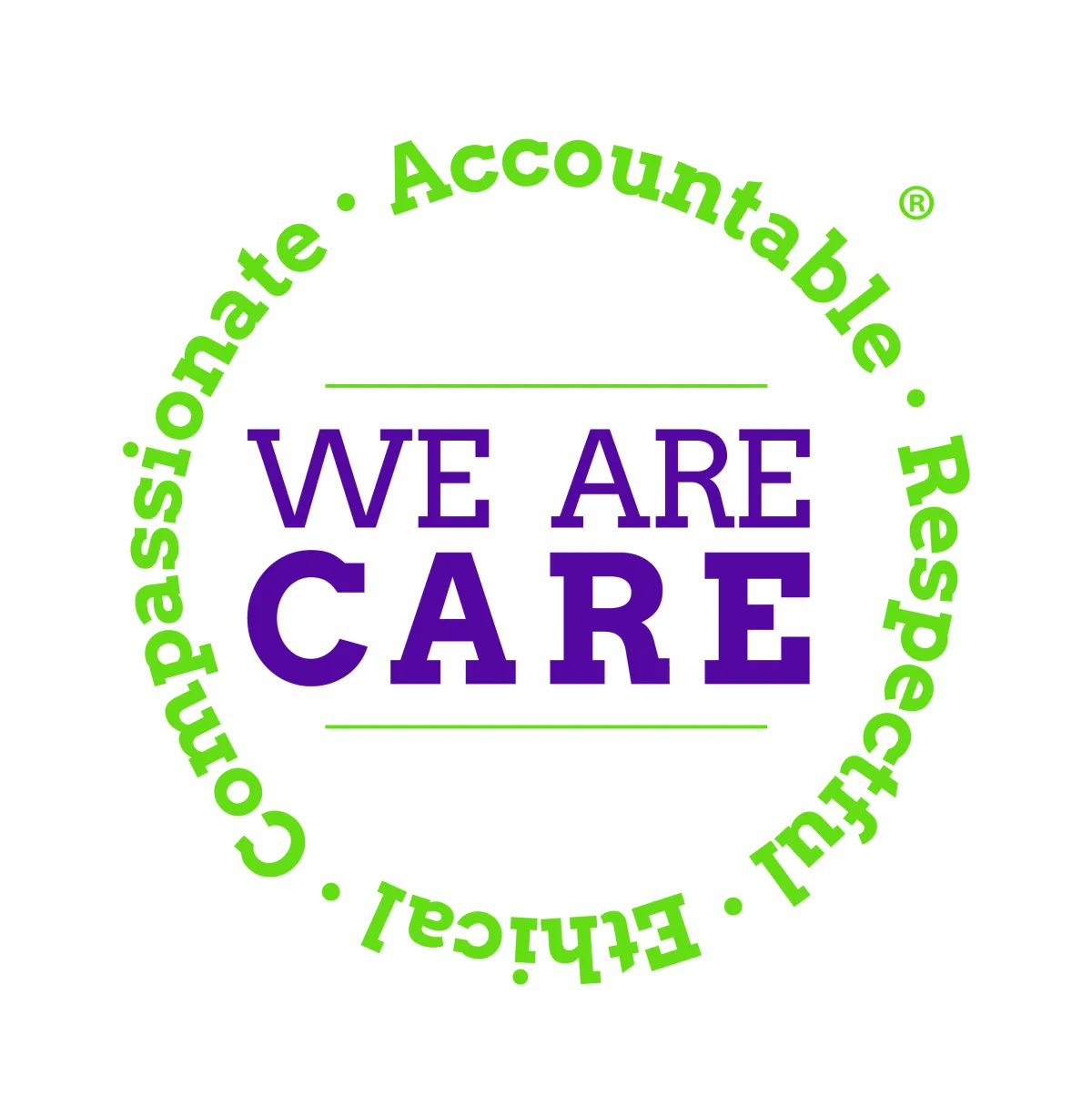
Blog

Reliable Senior Care Services: Supporting Your Loved Ones
Comprehensive Senior Services: How to Choose and Benefit From Quality Senior Care
In today's evolving society, ensuring quality care for seniors is more critical than ever. With the rapidly growing aging population, families often face challenges balancing independence with needed support. Comprehensive senior services offer options that bridge traditional medical care with everyday support. These services combine professional caregiving, technology-driven health monitoring, and personalized care plans to address emotional, physical, and social needs. They support activities of daily living while ensuring that seniors receive compassionate, coordinated care. This article guides families and caregivers in understanding senior services, improving quality of life, and making informed care decisions.
What Are Senior Services and Why Are They Important?
Senior services include a range of care options—skilled nursing, assisted living, home care, respite care, memory care, and more—to help older adults maintain independence while receiving necessary assistance. They provide support with daily activities such as bathing, dressing, eating, and mobility, while also addressing chronic diseases and conditions like dementia through therapies and personalized care plans. By combining preventive care, rehabilitation, and palliative support, these services reduce hospital admissions and emergency interventions. Additionally, coordinated communication among physicians, therapists, and social workers reassures families and enhances overall quality of life for seniors.
What Types of Senior Care Services Are Available?
A diverse range of senior care services is available:
In-Home Care Services – Personalized support in the senior’s own home, including help with cooking, cleaning, bathing, and medication management. These services also offer companionship and transportation for those needing moderate assistance.
Assisted Living Facilities – Residential settings where seniors receive assistance with daily tasks while retaining independence. These facilities provide communal dining, recreational activities, and essential healthcare support.
Skilled Nursing Facilities (Nursing Homes) – Facilities designed for seniors with significant medical needs. They offer round-the-clock care, specialized therapies, rehabilitation programs, and chronic disease management using advanced technology and trained staff.
Memory Care Units – Specialized environments for seniors with Alzheimer’s or dementia. These units offer structured and safe settings with therapeutic activities tailored to sustain cognitive function.
Respite Care and Short-Term Stays – Temporary care services that relieve family caregivers by providing short-term professional care, especially useful after hospitalizations or during caregiver breaks.
Day Programs and Adult Day Care Centers – Centers that provide daytime social, recreational, and therapeutic activities for seniors who continue to live at home, ensuring social engagement and mental stimulation.
Holistic and Palliative Care Services – Integrative care that focuses on physical, emotional, and spiritual well-being for seniors facing terminal or chronic conditions, often including counseling and support for family members.
Each service leverages professional caregiver support, clinical oversight, and technology to ensure care is tailored to individual needs.
How Do Senior Services Improve Quality of Life?
Senior services improve quality of life by addressing physical, emotional, and social health. Immediate benefits include better hygiene, increased mobility, and enhanced medication adherence. Over time, these services help in managing chronic diseases, reducing falls, and preventing injuries through regular monitoring and assistance with daily activities.
Consistent health assessments allow early detection of complications, reducing hospital visits. Social activities embedded in many programs combat loneliness and depression, while technology—such as remote monitoring and electronic health records—ensures that any change in health status is quickly addressed, boosting both physical stability and mental well-being.
Who Can Benefit From Senior Care Services?
Senior care services benefit a wide spectrum of individuals. Seniors who need help with daily tasks or supervision due to chronic conditions or cognitive impairments benefit directly. Those living alone or recovering from surgery find these services vital in maintaining independence and safety.
Families benefit as well because professional care reduces the physical and emotional burden on caregivers while providing peace of mind. When adult children balance careers with caregiving, these services help maintain family harmony. Communities also benefit through increased social cohesion and reduced pressure on emergency and hospital services.
How to Choose the Right Senior Care Service for Your Needs?
Choosing the right senior care service requires careful evaluation of both the senior’s needs and the provider’s capabilities. Begin by assessing the senior’s current condition and forecasting future requirements, including mobility, chronic diseases, and cognitive status. Research service providers by visiting facilities, speaking with staff, and reading testimonials.
Key factors include: - Provider Credentials: Look for accreditations, licensing, and quality training programs for caregivers. - Personalized Care Plans: Ensure that care plans are customized to address specific needs. - Affordability: Understand fee structures, insurance coverage, and available financial assistance. - Communication: Evaluate how effectively the provider communicates with families through regular updates and transparent care procedures.
A balanced evaluation of these qualitative and quantitative factors ensures that chosen services are both effective and adaptable over time.
What Factors Should You Consider When Selecting Senior Services?
When selecting senior services, consider: - Scope of Services: Verify the range of assistance offered, including help with daily living activities, medication management, and physical therapy. - Caregiver-to-Patient Ratio: A higher ratio often means more individualized attention. - Caregiver Qualifications: Inquire about training, background, and compassionate care practices. - Accessibility: Ensure the provider is easily accessible for visits or emergencies. - Communication and Transparency: Look for systems that provide regular updates regarding the senior’s condition. - Cost and Payment Options: Confirm whether services are covered by insurance or require private pay, and check for financial assistance programs.
How Do Personalized Care Plans Enhance Senior Care?
Personalized care plans are central to effective senior services. These plans are developed after a comprehensive evaluation by physicians, caregivers, and therapists, ensuring they address daily activities, medication management, diet, mobility, and cognitive health. Customized care means that interventions are timely and appropriate, reducing unnecessary treatments and costs. Regular feedback and monitoring allow care plans to evolve as the senior’s health changes, ensuring optimal outcomes and reduced hospital readmissions.
What Role Do Caregivers Play in Senior Services?
Caregivers are essential in delivering high-quality senior care. They not only assist with daily tasks but also offer emotional support, monitor health conditions, and ensure effective communication between the senior and healthcare providers. Skilled caregivers receive thorough training in handling conditions like dementia and chronic diseases, and they are taught safe patient handling techniques. Their empathetic and personalized approach is crucial in preserving the senior’s dignity and promoting overall well-being.
What Types of Senior Care Services Does Golden Years Solutions Offer?
Golden Years Solutions provides comprehensive senior care through a holistic approach. Their offerings include personalized in-home care, supportive assisted living, and specialized services such as memory care and respite care. Their integrated model includes programs for chronic disease management, rehabilitation, physical therapy, and mental health support.
A key feature is their Holistic Care Management Program, which develops detailed, personalized care plans that integrate medical care with social and physical activities. Additionally, the company uses advanced technology—such as remote health monitoring systems and electronic medical records—to enable early detection of changes in health status. Equally important is their rigorous process for selecting and training compassionate caregivers.
How Does a Holistic Care Management Program Work?
The program begins with a comprehensive assessment of the senior’s health, lifestyle, and social needs, involving input from physicians, caregivers, and family members. Based on this evaluation, a personalized care plan is created, outlining regular check-ups, tailored exercise routines, nutritional strategies, and cognitive activities to stimulate mental function. The plan is regularly updated through ongoing monitoring and follow-up appointments, ensuring that any changes in the senior’s condition are promptly addressed. This systematic approach reassures families and promotes optimal health outcomes.
What Technology Is Used to Support Senior Care?
Golden Years Solutions employs modern technological solutions to enhance care delivery. Key tools include: - Remote Health Monitoring: Wearable sensors and smart trackers record vital signs in real time. - Electronic Health Records (EHR): Digital records ensure the care team has access to up-to-date information. - Telehealth Services: Virtual consultations reduce the need for in-person visits. - Care Coordination Software: Platforms manage caregiver schedules and monitor individual care plans, using advanced algorithms to predict potential health risks.
How Are Experienced Caregivers Trained and Selected?
The company uses a rigorous, multi-step process to select caregivers. This includes background checks, interviews, and skills assessments. Candidates are often required to have certifications in CPR, dementia care, and chronic disease management. Selected caregivers receive continuous training on safe patient handling, the latest therapeutic techniques, and the use of modern monitoring devices. Ongoing evaluations and mentorship programs further ensure that caregivers maintain high standards of compassionate, personalized care.
How Can Families Support Seniors Using Senior Services?
Families play a crucial role in enhancing the effectiveness of senior services. They can support seniors by: - Maintaining open, regular communication with care providers through scheduled meetings and progress reports. - Participating in educational sessions that explain the benefits of physical therapy, memory care, and nutritional counseling. - Using digital platforms offered by service providers to monitor health updates in real time. - Providing feedback and actively engaging in the care planning process.
Such active involvement helps bridge the gap between professional services and personal comfort, ensuring a supportive care environment.
What Are the Benefits of Coordinated Senior Care for Families?
Coordinated care benefits families by reducing caregiver stress and ensuring seamless transitions between different levels of care. With all aspects of the senior’s health managed collectively, families receive regular, transparent updates and detailed care plans. This coordination decreases the risk of errors, minimizes disruptions during care transitions, and builds trust between families and care providers, resulting in improved overall outcomes.
How Can Families Communicate Effectively With Care Providers?
Effective communication strategies include: - Scheduling regular meetings (weekly or bi-weekly) for comprehensive updates. - Utilizing digital platforms for real-time monitoring. - Preparing questions before meetings to address concerns about changes in mobility or appetite. - Reviewing written updates or care diaries provided by caregivers. - Maintaining transparency with clear expectations to foster a strong partnership with the care team.
What Resources Are Available for Family Caregivers?
Family caregivers can access various resources: - Local support groups and educational seminars. - Online counseling platforms and legal advice services. - Workshops and respite care services provided by non-profit organizations or hospital networks. - Government programs and community health services that offer financial assistance or subsidized training. These resources help alleviate the emotional and financial burdens of caregiving while promoting effective care practices.
What Are the Costs and Payment Options for Senior Services?
Costs for senior care vary significantly, depending on the type of service and location. In-home care may range from moderate expenses, while skilled nursing and specialized memory care units tend to be more expensive. Assisted living and comprehensive residential care generally command higher fees due to the extensive support provided.
Families should inquire about payment options, which may include private pay, long-term care insurance, and government-funded programs such as Medicare or Medicaid. Many providers also offer sliding-scale fees or bundled packages to lower expenses. Transparent billing and detailed pricing breakdowns are key to avoiding unexpected costs.
How Much Do Senior Care Services Typically Cost?
Generally, in-home care services cost about $3,000 to $5,000 per month; assisted living ranges between $4,000 and $7,000 per month; and skilled nursing facilities may exceed $10,000 per month. Additional costs depend on the level of personalization, technology for monitoring, and extra services like physical therapy.
What Payment Methods and Insurance Options Are Accepted?
Providers typically accept various payment methods including private pay, long-term care insurance, and government programs like Medicare and Medicaid. Payments can be made via check, credit card, or direct bank transfers, with many providers offering online billing for convenience. It is important for families to request detailed documentation regarding payment schedules and any extra fees.
Are There Financial Assistance Programs for Senior Care?
Several financial assistance programs exist, including Medicaid waivers, long-term care insurance policies, and local grants. Non-profit organizations and community health groups may also offer financial counseling and subsidized care, helping families manage costs effectively.
How Do Senior Services Adapt to Different Health and Mobility Needs?
Senior services are customized to meet various health conditions and mobility challenges. Providers conduct comprehensive assessments to identify chronic conditions, mobility issues, and cognitive impairments. Based on these evaluations, individualized care plans may include home modifications (grab bars, ramps), provision of mobility aids, and scheduled physical therapy sessions to enhance strength and balance. Technology such as remote monitoring and digital emergency systems enables prompt response to health changes, further ensuring safety.
What Services Support Seniors With Chronic Conditions?
For seniors with chronic conditions like diabetes, heart disease, or arthritis, providers offer targeted interventions including: - Regular medical and nursing check-ups. - Medication management and routine diagnostic tests. - Chronic disease management programs that incorporate counseling, nutritional guidance, and physical therapy. These services help in reducing complications and maintaining long-term health.
How Is Mobility Assistance Provided in Senior Care?
Mobility assistance is provided through: - Use of mobility aids such as walkers, canes, and wheelchairs. - Professional assistance in movement using safe patient handling techniques. - Customized physical therapy sessions to improve balance and prevent falls. - Home modifications to create safe environments, including non-slip surfaces and handrails.
What Safety Measures Are Included in Senior Services?
Safety is ensured through: - Around-the-clock monitoring systems and emergency alert devices. - Routine home safety evaluations to identify potential hazards. - Smart home technologies like motion sensors and fall detectors. - Regular staff training on safety protocols and medication management. These measures provide peace of mind to both seniors and their families.
What Are Common Questions About Senior Services?
Below are some frequently asked questions addressing common concerns about senior services:
How Do Senior Services Promote Independence?
Senior services enable independence by offering professional support that allows seniors to continue living at home. Through tailored care plans and regular monitoring, seniors receive help as needed—ensuring safety and preserving autonomy.
Can Senior Services Be Customized Over Time?
Yes, care plans are continually reviewed and updated to reflect changes in health, mobility, and cognitive function. This ongoing customization ensures that services remain relevant and effective.
How Do You Evaluate the Quality of Senior Care Providers?
Quality is gauged through accreditation, licensing, caregiver training, and testimonials. Transparent communication and independent inspections further confirm that providers adhere to high standards.
How Do Senior Services Ensure Comprehensive Health Monitoring?
A combination of regular physician visits, telehealth services, and wearable monitoring devices helps ensure that any deviation in health status is promptly detected and managed, reducing emergency hospitalizations.
How Can Senior Care Providers Enhance Emotional and Social Well-Being?
Providers integrate social activities such as day programs, group therapy, and recreational sessions to combat isolation. These activities, combined with one-on-one caregiver support, help maintain cognitive function and improve mood.
Frequently Asked Questions
Q: What is the difference between in-home care and assisted living? A: In-home care delivers professional assistance within the senior’s own home, focusing on daily activities and personalized health monitoring. Assisted living provides a residential setting with shared amenities, structured activities, and continuous support.
Q: How do senior services adapt to changes in medical needs? A: Through ongoing health assessments, technological monitoring, and coordinated communication, care plans are regularly updated to match the evolving medical needs of seniors.
Q: Can senior care services reduce hospital readmissions? A: Yes, comprehensive monitoring and personalized care plans help prevent complications, significantly reducing the frequency of hospital readmissions.
Q: What role does technology play in senior care? A: Technology facilitates remote monitoring, maintains electronic health records, enables telehealth consultations, and provides emergency alert systems for proactive care management.
Q: Are financial assistance programs available for senior care services? A: Many providers offer flexible payment options. Additionally, grants, Medicaid waivers, and financial counseling are available to help manage costs.
Q: How is caregiver quality ensured in senior services? A: Rigorous recruitment, continuous training, and regular performance reviews ensure that caregivers provide high-quality, compassionate care.
Q: How can families stay involved in the senior care process? A: Families can attend care planning meetings, use digital communication tools for updates, review care diaries, and participate in educational sessions to better understand the care provided.
Final Thoughts
The array of senior services available today offers a comprehensive approach to balancing medical care, personalized support, and emotional well-being for seniors. With options ranging from in-home care to assisted living, these services emphasize quality of life through coordinated, technology-driven care. By choosing providers who offer robust personalized care plans and maintaining open communication, families can be confident that their loved ones will receive the support they need to age with dignity, independence, and optimal health.
We are C.A.R.E.
✅ Compassionate
✅ Accountable
✅ Respectful
✅ Ethical
A Mother & Son Duo. We are family! We are more than Senior Care providers. We bring Heart and Experience into Senior Care.
Our President is a Social Worker and Mental Health Therapist. He believes every Senior deserves to Age with Dignity and Independence. Our Chief Operations Officer is a retired Teacher and lifelong Educator. She ensures every client receives High-Quality Care while aging in place.
Together, they Walk by Faith, Live with Hope and Love, and Share a deep and abiding commitment to the Elderly. They work diligently to support Families who CARE for loved ones At Home.

Our Mission
Metro Atlanta's and North Georgia’s Trusted Source for In-Home Care.
We Support the Whole Person: Mind, Body, and Spirit.
Guided by Dignity, Warmth, and Heart.
We show up, Serve with Purpose, and Care for Your Family.
This is our Commitment. This is our Promise. No One Ages Alone.
Our Promise
Metro Atlanta's and North Georgia’s Trusted Source for In-Home Care. We Support the Whole Person: Mind, Body, and Spirit. Guided by Dignity, Warmth, and Heart, we Show up, Serve with Purpose, and Care for Your Family.
This is our Commitment. This is our Promise. No One Ages Alone.
Why Families and Professionals Trust
A Place At Home Alpharetta
A Place At Home Alpharetta is more than a Company. We are an Agency that Families, Physicians, and Professionals Trust.
Built on a Divine foundation of Compassion, Patience, and a Genuine Love for Seniors, we Walk beside those facing some of life’s most delicate moments. Through illness, transitions, and uncertainty, we provide Steady, Reliable Care offering Comfort, Kindness, and Reassurance when it matters most.
Families, Physicians, and Professionals place their trust in A Place At Home Alpharetta because our care is grounded in
Compassion, Accountability, Respect, and Ethics (C.A.R.E.).
We deliver more than care, we honor each person’s dignity, support their well-being, and bring peace of mind to Families who Entrust their loved ones to us.

Get In Touch 24/7
Address: 1104 Macy Dr. Roswell, GA. 30076
Copyright © 2025 All Right Reserved A Better Caregiver At Home LLC

